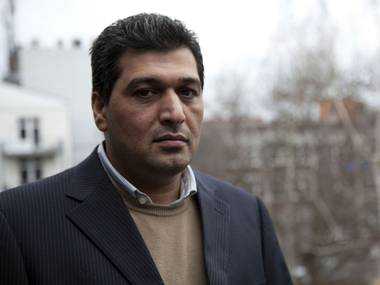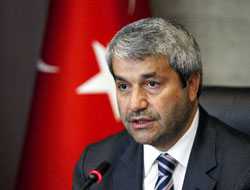Defector tells how US officials ‘sexed up’ his fictions to make the case for 2003 invasion
JONATHAN OWEN
 A man whose lies helped to make the case for invading Iraq – starting a nine-year war costing more than 100,000 lives and hundreds of billions of pounds – will come clean in his first British television interview tomorrow.
A man whose lies helped to make the case for invading Iraq – starting a nine-year war costing more than 100,000 lives and hundreds of billions of pounds – will come clean in his first British television interview tomorrow.
“Curveball”, the Iraqi defector who fabricated claims about Iraq’s weapons of mass destruction, smiles as he confirms how he made the whole thing up. It was a confidence trick that changed the course of history, with Rafid Ahmed Alwan al-Janabi’s lies used to justify the Iraq war.
He tries to defend his actions: “My main purpose was to topple the tyrant in Iraq because the longer this dictator remains in power, the more the Iraqi people will suffer from this regime’s oppression.”
The chemical engineer claimed to have overseen the building of a mobile biological laboratory when he sought political asylum in Germany in 1999. His lies were presented as “facts and conclusions based on solid intelligence” by Colin Powell, US Secretary of State, when making the case for war at the UN Security Council in February 2003.
But Mr Janabi, speaking in a two-part series, Modern Spies, starting tomorrow on BBC2, says none of it was true. When it is put to him “we went to war in Iraq on a lie. And that lie was your lie”, he simply replies: “Yes.”
US officials “sexed up” Mr Janabi’s drawings of mobile biological weapons labs to make them more presentable, admits Colonel Lawrence Wilkerson, General Powell’s former chief of staff. “I brought the White House team in to do the graphics,” he says, adding how “intelligence was being worked to fit around the policy”.
As for his former boss: “I don’t see any way on this earth that Secretary Powell doesn’t feel almost a rage about Curveball and the way he was used in regards to that intelligence.”
Another revelation in the series is the real reason why the FBI swooped on Russian spy Anna Chapman in 2010. Top officials feared the glamorous Russian agent wanted to seduce one of US President Barack Obama’s inner circle. Frank Figliuzzi, the FBI’s head of counterintelligence, reveals how she got “closer and closer to higher and higher ranking leadership… she got close enough to disturb us”.
The fear that Chapman would compromise a senior US official in a “honey trap” was a key reason for the arrest and deportation of the Russian spy ring of 10 people, of which she was a part, in 2010. “We were becoming very concerned,” he says. “They were getting close enough to a sitting US cabinet member that we thought we could no longer allow this to continue.” Mr Figliuzzi refuses to name the individual who was being targeted.
Several British spies also feature in the programme, in the first time that serving intelligence officers have been interviewed on television. In contrast to the US intelligence figures, the British spies are cloaked in darkness, their voices dubbed by actors. BBC veteran reporter Peter Taylor, who worked for a year putting the documentary together, describes them as “ordinary people who are committed to what they do” and “a million miles” from the spies depicted in film. He adds: “What surprised me was the extent to which they work within a civil service bureaucracy. Everything has to be signed off… you’ve got to have authorisation signed in triplicate.”
Would-be agents should abandon any Hollywood fantasies they may have, says Sonya Holt at the CIA recruitment centre. “They think it’s more like the movies, that they are going to be jumping out of cars and that everyone carries a weapon… Yes we’re collecting intelligence but we don’t all drive fast cars. You’re going to be writing reports; you’re in meetings so it’s not always that glamorous image of what you see in the movies.”
www.independent.co.uk, 01 APRIL 2012

